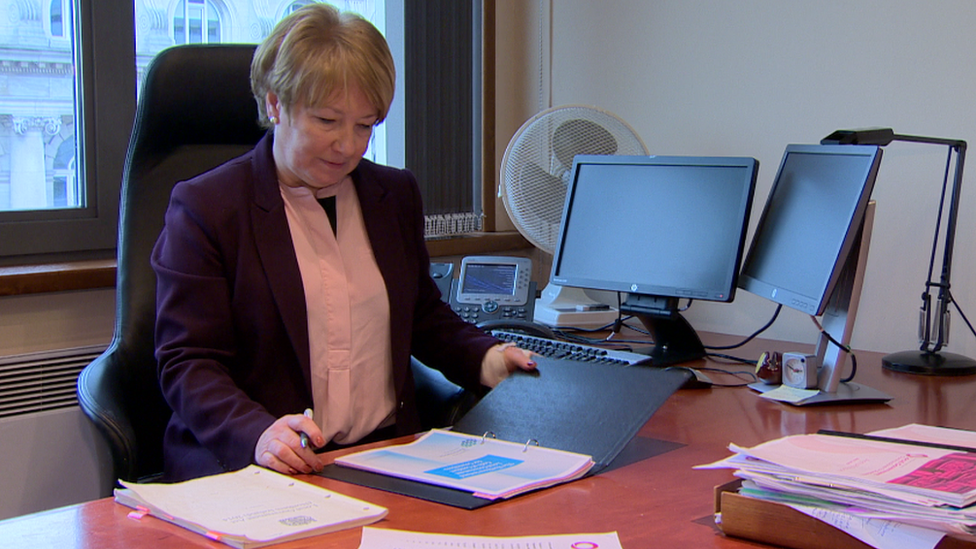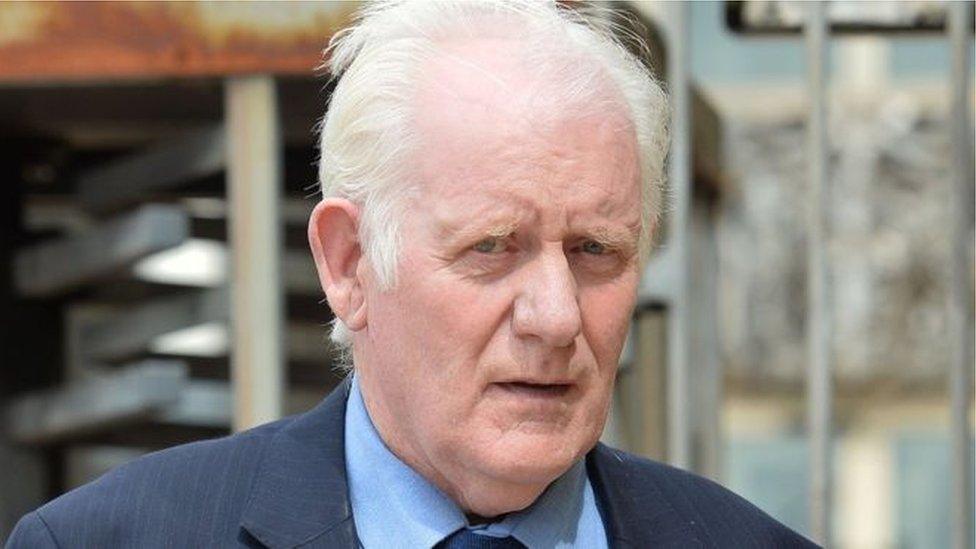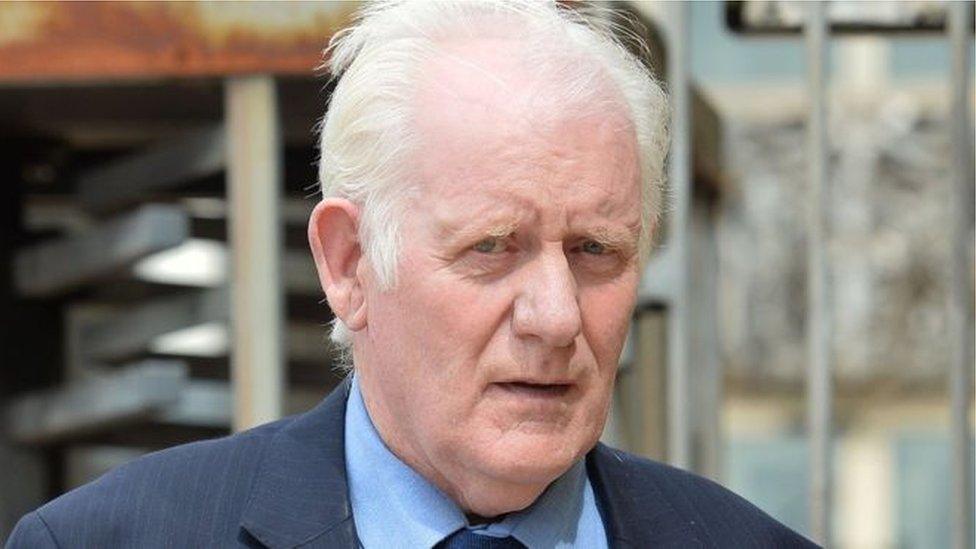Local government commissioner would welcome wider powers
- Published

Local Government Commissioner Marie Anderson would welcome the power to investigate councillors without a complaint
The Local Government Commissioner for Standards has said she would welcome a new power allowing her office to investigate councillors' conduct without needing a written complaint.
Under current legislation, a member of the public must make a complaint against a councillor in writing, before it can be assessed and investigated.
Marie Anderson was speaking as she launched her annual report,
It revealed an increase in the number of complaints made to her office.
A total of 44 complaints were made against councillors in 2017/18, compared to 34 in 2016/17.
Conduct of councillors
"I am very much aware that there have been recent calls for me to have an 'own initiative' power in relation to conduct of councillors in Northern Ireland," she said.
"Now that's a power that I have when I investigate complaints about public services in Northern Ireland and it seems incongruous that I don't have similar power in relation to the conduct of councillors," she added.
"Nevertheless it will require legislative change. We need an assembly to bring any necessary amendments, but certainly given recent calls for this power, it's certainly a power that I would welcome."
Antrim and Newtownabbey councillor, Jim Montgomery, has said the commissioner should have been able to conduct an automatic investigation in the case of a former SDLP councillor who sexually assaulted a teenage girl.

Brian Duffin resigned as a councillor after losing his appeal against a conviction for sex assault
Brian Duffin, 74, who resigned his seat in November after losing an appeal against his conviction, is currently being investigated by the Standards Commissioner, but the investigation only commenced when a complaint was made in writing.
Mr Montgomery, a UUP representative, said a written complaint should not have been required:
"It's an obvious case where the local government standards office should be able to step in, it's clear cut in that respect and it shouldn't require a written complaint to be made.
"So there needs to be a review of what triggers action by the office and give them the ability to step in automatically," he said.
Sanctions
The commissioner said the rise in the number of complaints was a result of "the increased visibility around the cases which have entered the public domain".
Of the complaints just one resulted in sanctions being taken against the councillor concerned.
A Sinn Féin councillor, Sean McGlinchey, was issued with a censure for breaching the 'Respect Principle' of the code when criticising a council official.
Alternative action was taken against a TUV councillor, Andrew Girvin, who accepted he had breached the sections of the code relating to lobbying and was referred for further training on planning matters.
In a wide ranging interview with the BBC News NI, Marie Anderson said her office did not have "sufficient resources" to enable it to conduct the increasing number of complaints coming before it and had made a bid for extra funding.
"This year I have actually made a bid for additional resources for an additional investigator and for an additional resource to help promote good practice under the code and I am awaiting the outcome of that bid," she said.

Patrick Brown was suspended for six months after a drink driving conviction
Ms Anderson also said she had set her staff the challenge of completing 60% of investigations in 2018/19 within nine months in response to concerns that some probes are taking too long.
"There may be many reasons for that, it may be the lack of cooperation on the part of the councillor who is complained of to come to interview, it could be the fact that there are other criminal, other investigation proceedings ongoing but it could also be lack of resources."
When asked whether she believed her adjudications had been fair and consistent, Ms Anderson referred to the case of an Alliance councillor, Patrick Brown, who unsuccessfully appealed his six month suspension at the High Court after he was convicted of drink-driving in April 2018.
"Last year Justice Keegan issued a decision in which she upheld my decision in relation to suspending a councillor for a drink driving conviction and said that such a conviction is automatic suspension, so I feel that the process is fair and has had the endorsement of the High Court."
Mr Brown's suspension will be recorded in the 2018/19 annual report.
- Published29 November 2018

- Published27 April 2018
